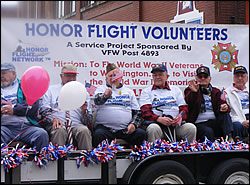Breast Cancer Awareness Month
October marks National Breast Cancer Awareness Month. Today, thanks to early detection and recent medical advances, women are surviving breast cancer, remaining disease free and living longer, healthier lives. Yet despite this encouraging news, being diagnosed with breast
cancer can still be an overwhelming experience. If you or someone you know has been diagnosed with breast cancer, remember that no one has to face this disease alone.
Here are a few tips about where to turn for breast cancer advice and support:
Consult Your Doctor
No one is better qualified than your doctor or health care professional to give you advice about preventing, diagnosing and treating breast cancer. In fact, a recent survey of women who have had breast cancer found that nearly three-quarters of breast cancer survivors relied heavily on their doctors or health professionals on their path to recovery.
Talk To Your Family And Friends
Family and friends can be pillars of emotional strength during your cancer experience. According to the survey of breast cancer survivors, 84 percent of women who have had breast cancer said they depended greatly on family members on their path to recovery, while more than two-thirds relied heavily on friends. Moreover, a recent study showed that relatives who discuss their family’s history of cancer are also more knowledgeable about genetic counseling and testing for breast cancer.
Find A Cancer “Coach”
An increasing number of advocacy groups and hospitals provide cancer specialists who offer personal guidance to patients as they deal with cancer’s many challenges. The American Cancer Society, The National Breast Cancer Coalition and The University of Texas M.D. Anderson Cancer Center are among the organizations that currently provide such cancer “navigators” or “coaches.”
Join A Support Group
Two-thirds of women who have had breast cancer say that they identify a great deal with other women who have also had the disease. New research has shown that joining a support group can actually improve quality of life for breast cancer survivors: Participants report less pain, distress, and anxiety. Today, support groups are the most widely available resource for free psychological support for cancer patients. With a community of about 2.5 million breast cancer survivors in the U.S. today, finding a support group in your area may be easier than you think.
Educate Yourself
Finally, empower yourself by learning more about breast cancer. Although October is National Breast Cancer Awareness Month, breast cancer awareness is a year round concern. For more in-depth information on breast cancer, visit the National Breast Cancer Awareness Month Web site at www.NBCAM.org.
Where To Turn After A Breast Cancer Diagnosis
Tips About Where To Turn
For Breast Cancer Advice
• Consult your doctor. Talk to your family and friends.
• Find a cancer “coach.”
• Join a support group. Educate yourself, visit www.NBCAM.org.
This release came from the National Awareness Breast Cancer site.


